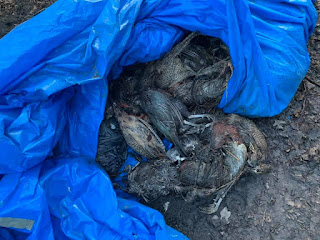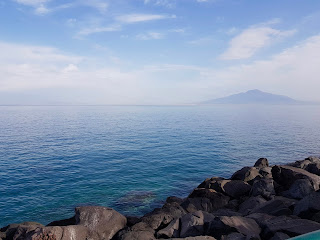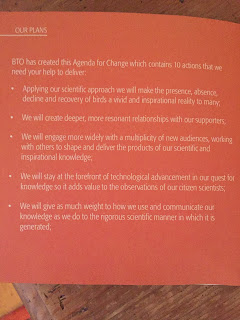Covid-19 has of course had a huge impact on BTO related surveys this year and it was looking very unlikely that we would be able to complete this year's heronry census at a site in Cheshire. Over the last 6 years that I have been involved in this survey, we have always started the heronry census in April, so hopes were fading for this year's count. But the easing of lockdown on 13th May gave us a late chance to complete this year's survey.
Land owners permission is of course always a vital part of the survey process, but this year it was even more important to ensure we complied with any additional rules and regulations the land owner may have put in place due to Covid-19.
We completed the count of apparently occupied nests and logged the trees's GPS grid reference on 18th May. We were pleased to see the numbers come back up a bit after 2019's decline. Perhaps this was due to the lower rates of disturbance as a result of lockdown, for example less water sports and less people generally around feeding areas.
The dry weather has helped with the count, as clues such as white wash were still evident (and not washed away by rain). There were of course the more obvious clues of occupancy from some of the chicks that sadly didn't make it.
It will be interesting to see the final results across the country for this years survey and see if the milder winter, and less disturbance due to lockdown, have had a positive impact on the numbers.
Site Results Since 2014
Land owners permission is of course always a vital part of the survey process, but this year it was even more important to ensure we complied with any additional rules and regulations the land owner may have put in place due to Covid-19.
We completed the count of apparently occupied nests and logged the trees's GPS grid reference on 18th May. We were pleased to see the numbers come back up a bit after 2019's decline. Perhaps this was due to the lower rates of disturbance as a result of lockdown, for example less water sports and less people generally around feeding areas.
The dry weather has helped with the count, as clues such as white wash were still evident (and not washed away by rain). There were of course the more obvious clues of occupancy from some of the chicks that sadly didn't make it.
It will be interesting to see the final results across the country for this years survey and see if the milder winter, and less disturbance due to lockdown, have had a positive impact on the numbers.
Site Results Since 2014
2014 - 70
2015 - 64
2016 - 71
2017 - 69
2018 - 64
2019 - 47



































